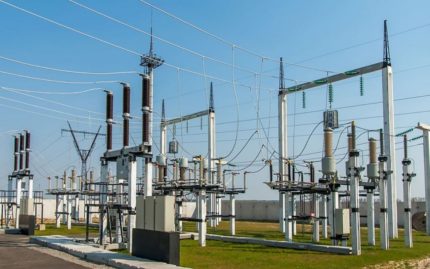The Federal Government of Nigeria has disclosed that neighboring countries Togo and Benin owe a cumulative sum of $14.19 million for electricity supplied in the first quarter of 2024. According to the Nigerian Electricity Regulatory Commission (NERC), none of the four international bilateral customers, including Para-SBEE and Transcorp-SBEE in Benin, and Mainstream-NIGELEC and Odukpani-CEET in Togo, made payments against the invoices issued by the Market Operator. The debts owed by these entities are significant, with Benin Republic’s Para-SBEE and Transcorp-SBEE owing $3.15 million and $4.46 million, respectively, while Mainstream-NIGELEC and Odukpani-CEET in Togo owe $1.21 million and $5.36 million.
The lack of payment from these international consumers has raised concerns about financial indiscipline within the electricity supply industry. NERC’s report highlights that no remittances were made by the bilateral customers within Nigeria either, against the cumulative invoice of N1.86 million issued for services rendered in the same period. However, it was noted that some payments were made by both local and international customers towards clearing outstanding Market Operator invoices from previous quarters, totaling $5.96 million from international customers and N505.71 million from eight local bilateral customers.
Payment Indiscipline in the Nigerian Power Sector
The Nigerian Electricity Regulatory Commission (NERC) has expressed concern over the persistent payment indiscipline exhibited by both local and international customers in the power sector. The commission’s report for the first quarter of 2024 reveals that despite the issuance of invoices totaling $14.19 million to international bilateral customers, no payments were received. This trend is not new; in 2023, international consumers failed to remit about $51.26 million for electricity supplied by Nigeria, a situation that the Federal Government described as unacceptable.
The NERC has called on the Market Operator, a branch of the Transmission Company of Nigeria (TCN), responsible for overseeing Nigeria’s power exports, to enforce the market rules to address this payment indiscipline. The commission’s analysis of the industry data from 2023 indicates a consistent failure by international consumers to remit payments, with quarterly arrears of $16.11 million, $11.97 million, $11.16 million, and $12.02 million reported. The NERC’s call to action underscores the importance of ensuring timely payments to sustain the financial viability of Nigeria’s power sector.
Efforts to Recover Outstanding Debts
In response to the growing issue of non-remittance by international and local bilateral customers, the Nigerian Electricity Regulatory Commission (NERC) is urging the Market Operator to take decisive action to recover the outstanding debts. The NERC’s report highlights that while some payments have been made towards clearing debts incurred before the first quarter of 2024, significant amounts remain unpaid. Specifically, $5.96 million was paid by two international customers, and N505.71 million was received from eight local bilateral customers for pre-2024 debts.
The Federal Government has emphasized the need for stricter enforcement of payment rules to prevent further financial strain on the Nigerian power sector. The ongoing non-remittance issue, particularly with international customers, poses a significant challenge to the sustainability of Nigeria’s electricity supply industry. As the government and regulatory bodies work to address this issue, it remains critical that bilateral customers adhere to their payment obligations to ensure the continuous supply of electricity across borders and maintain the financial health of the sector.
Declining Generation Capacity and Its Impact on Nigeria’s Power Sector
The NERC report also sheds light on the broader challenges facing Nigeria’s power sector, particularly the decline in available generation capacity. In the first quarter of 2024, the average available generation capacity across all power plants in the country fell to 4,249.10MW, representing a decrease of 13.68% (or 673.16MW) compared to the 4,922.26MW recorded in the fourth quarter of 2023. This reduction was primarily attributed to lower generation capacities at 17 of the 27 grid-connected power plants.
This decline in generation capacity had a ripple effect on overall electricity production. The report notes that the average hourly generation of available units dropped by 8.22% (or 364.25MWh/h), falling from 4,433.82MWh/h in Q4 2023 to 4,069.57MWh/h in Q1 2024. Consequently, total electricity generation decreased by 9.21% (or 901.94GWh), from 9,789.87GWh in Q4 2023 to 8,887.93GWh in the first quarter of 2024. This decline in gross energy generation underscores the ongoing challenges within Nigeria’s power sector, where reduced generation capacities at key power plants continue to hinder the country’s ability to meet both domestic and international electricity demand effectively.
Table of Contents
Discover more from OGM News NG
Subscribe to get the latest posts sent to your email.














